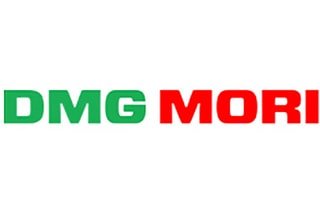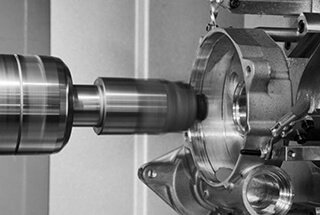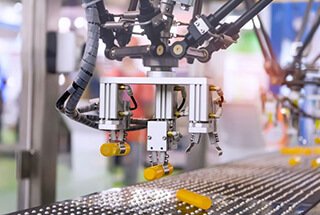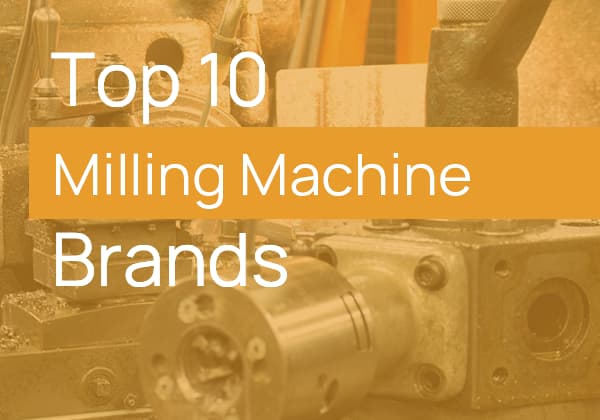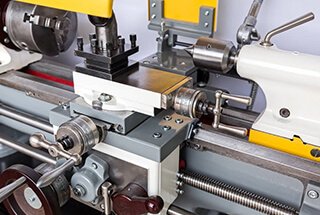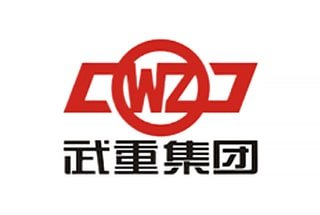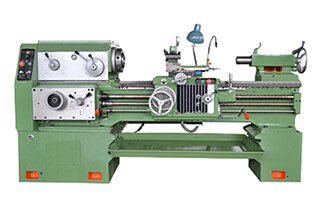
Ever wondered which companies are shaping the future of lathe manufacturing in China? In this article, we explore the top players in the industry, highlighting their innovations and contributions. You’ll gain insights into the leading manufacturers and their cutting-edge technologies.
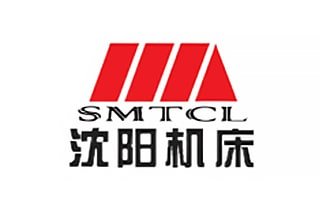
The China lathe manufacturing industry stands as a significant and dynamic sector within the global manufacturing landscape. With a market value exceeding RMB 200 billion (approximately US$27.86 billion), China’s machine tool industry, which includes lathe machines, holds the position of the world’s largest. China’s dominance in global machine tool exports is evident, accounting for a substantial 32% of the global market share, according to data from the China Machine Tool & Tool Builders’ Association (CMTBA).
The Chinese government has played a pivotal role in supporting the development of the domestic machine tool industry, including the manufacturing of lathes. Initiatives such as “Made in China 2025” aim to elevate China into a high-end producer of goods, fostering increased demand for advanced machinery and equipment. This support translates into significant investments in research and development, subsidies, and favorable policies for domestic manufacturers.
China has prioritized the development of precise, intelligent Computer Numerical Control (CNC) machine tools and accessories. CNC stands for Computer Numerical Control, which refers to the automated control of machining tools by means of a computer. Despite robust domestic production, there remains a reliance on imported high-end CNC machine tools and accessories, presenting opportunities for foreign collaboration and investment. The industry is spearheaded by fewer than 20 high-end manufacturers. Companies like Dalian Machine Tool Corporation, RIFA, and Leader have gained international recognition. These manufacturers are heavily investing in Industry 4.0 technologies, such as the Internet of Things (IoT), additive manufacturing, robotics, artificial intelligence (AI), and big data analytics. These technologies enhance productivity and reduce operational costs by enabling smarter, more efficient manufacturing processes.
The automotive sector serves as a major driver of demand for lathe machines in China, contributing to 40% of the total demand for domestically produced low-end CNC machine tools. Other significant sectors include aerospace, mold making, and construction machinery, accounting for 17%, 13%, and 10% of the demand, respectively. These industries rely on high-precision and reliable lathe machines for various manufacturing processes, making them critical to the growth of the lathe manufacturing industry.
In 2020, China’s production of metal-cutting machine tools, including lathes, witnessed a 5.9% year-on-year growth to 446,000 units. The country’s lower production costs and availability of relatively cheaper labor have positioned it as an attractive sourcing destination for machine tools globally. Moreover, China’s strong intra-regional trade and rising export orders from developed markets have further propelled the growth of the lathe machine industry in the Asia-Pacific region. This growth underscores China’s influence in the global machine tool market.
The market is poised to continue its growth trajectory, driven by the increasing adoption of CNC lathes, advancements in lathe machine design and functionalities, and the integration of Industry 4.0 technologies. Government initiatives and the growing demand from industries such as automotive and aerospace are expected to sustain the growth of the lathe manufacturing industry in China. The continued focus on innovation and technological advancement will be key to maintaining and enhancing China’s position in the global market.
China is home to a number of leading lathe manufacturers known for their innovation, quality, and extensive range of products. These companies have established a strong reputation both domestically and internationally. This chapter provides an overview of some of the top Chinese lathe manufacturers, highlighting their key products, unique selling points, market positioning, and specific innovations.
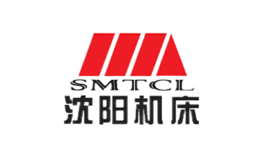
Shenyang Machine Tool, established in 1993 and with a heritage dating back to 1933, stands as a significant entity in China’s machine tool industry. Listed on the Shenzhen Stock Exchange (code: 000410), the company emerged from the merger of four pioneering firms, including the Shenyang First Machine Tool Factory. It is renowned for producing a diverse array of high-quality machine tools, such as horizontal and vertical lathes, gantry machines, and milling centers.
Since 2010, Shenyang Machine Tool has made substantial strides in enhancing product quality by adopting cutting-edge technologies and advanced materials. A notable example is the incorporation of the microcrystalline alloy LZA4205 in their CNC turrets, which has significantly boosted both quality and cost efficiency.
Beyond manufacturing, Shenyang Machine Tool offers a wide range of services for SMTCL lathe machine spare parts. These services include sales, maintenance, consulting, and technical training, all designed to simplify customer access to machine tool parts and enhance overall value.
The company plays a pivotal role in the Shenyang CNC Machine Tool Industrial Park, a modern and specialized hub for CNC machine tool manufacturing that houses nine major enterprises. This strategic initiative underscores Shenyang Machine Tool’s commitment to maintaining a leading edge in the global machine tool industry.
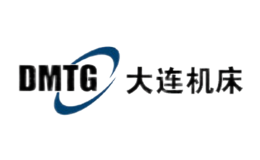
Founded in 1935, Dalian Machine Tool Group Co., Ltd. (DMTG) has evolved into one of China’s largest and most prominent bases for the research, development, and manufacturing of CNC machine tools, flexible manufacturing systems, and complete sets of automated technology and equipment. Now operating under the umbrella of China General Technology Group, DMTG is renowned for its CNC machine tools and has cemented its position as an industry leader.
As a backbone enterprise in China’s machine tool industry, DMTG has undergone significant transformations over the decades. In 1995, it consolidated major state-owned machine tool enterprises in Dalian, and in 2000, it integrated the Dalian Combination Machine Tool Research Institute. Subsequent mergers and acquisitions have expanded its global footprint, including partnerships with companies from the United States, Germany, Japan, Switzerland, and South Korea, and the establishment of eight joint ventures.
Supported by national policies aimed at revitalizing the Northeast’s old industrial base, DMTG has built modern production bases in Dandong Port and Wafangdian. These facilities have propelled the company to the forefront of comprehensive manufacturing of CNC machine tools and parts in China.
DMTG’s product lineup is extensive, ranging from CNC flexible combination machine tools and automatic lines to intelligent manufacturing units, multi-axis machining centers, and industrial robots. The company remains at the forefront of national innovation in machine tools technology, contributing significantly to strategic sectors such as automotive and rail transport.
With more than 80 years of history, DMTG has supplied over half a million machine tools to industries like automotive, rail transport, construction machinery, oil machinery, and mining metallurgy. Its products are sold in over 100 countries, making a substantial contribution to China’s manufacturing capabilities.
The company’s sales network spans across China, offering a wealth of machine tools and original equipment parts. DMTG commits to responsive customer service, ensuring satisfaction with prompt deliveries and after-sales support. Its dedication to meeting customer needs and market development, coupled with a robust sales and service system, has built a strong brand reputation. Embracing a modern, integrated approach to marketing and services, DMTG is committed to fostering cooperation and creating a brighter future with its partners.
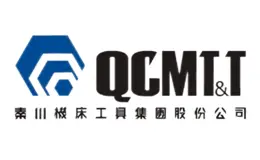
Founded in 1965, Qinchuan Machine Tool Group (stock code: 000837) has established itself as a distinguished leader in China’s machine tool industry. The company specializes in the development and manufacturing of precision CNC (Computer Numerical Control) machine tools and complex tools. With a robust network of subsidiaries, including Qinchuan Machine Tool, Baoji Machine Tool, Hanjiang Machine Tool, Hanjiang Tools, Walker Gear, Qinchuan Grande, and Qinchuan Bao Yi, the group has cemented its status as a national high-tech enterprise and an innovative pilot company.
Qinchuan Machine Tool Group offers an extensive array of products, catering to various high-end manufacturing needs. These include:
Additionally, the company produces:
Qinchuan Machine Tool Group is at the forefront of intelligent manufacturing, offering a suite of solutions that include:
The company’s strategic vision is encapsulated in its dedication to “equipping China and entering the global arena.” Qinchuan Machine Tool Group focuses on:
The company actively participates in national R&D tasks and aims to become a world-class system integrator and key component supplier in the high-end equipment manufacturing sector. It is committed to driving original innovation in critical core technologies for industrial mother machines.
Qinchuan Machine Tool Group is recognized as a backbone enterprise in the precision CNC machine tool and complex tool manufacturing base in China. It boasts multiple national-level specialized and innovative “Little Giant” enterprises. The company has established a national-level enterprise technology center, academician expert workstations, and post-doctoral research stations. It has received numerous accolades, including the National Science and Technology Progress Award, and its trademark has been honored as a “Well-Known Trademark in China.”
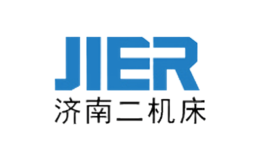
Founded in 1937, Jinan No.2 Machine Tool Group Co., Ltd. has evolved into a leading manufacturer of stamping equipment, establishing itself as one of China’s largest hubs for forging equipment and heavy-duty metal cutting machine tools. The company’s extensive product portfolio includes forging equipment, CNC metal cutting machine tools, automation equipment, casting machinery, and CNC cutting equipment, serving critical sectors such as automotive, aerospace, rail transit, and more.
Occupying over 1.23 million square meters and employing a dedicated workforce of over 5,000, Jinan No.2 Machine Tool Group has been at the forefront of industry innovation since its inception. Notable achievements include the production of China’s first gantry planer in 1953 and the first mechanical press in 1955. Over the years, the company has developed more than 600 nationally pioneering products, providing essential equipment support to various industrial sectors.
As a major manufacturing base, Jinan No.2 Machine Tool Group offers a diverse array of products, including:
These products have significantly enhanced the company’s global footprint, with exports reaching 67 countries.
The company has been recognized by the State Council for its substantial contributions to the field of major technical equipment. It is celebrated as one of the top three CNC stamping equipment manufacturers worldwide. As a state-owned enterprise, Jinan No.2 Machine Tool Group is part of China’s “Eighteen Arhats” of the machine tool industry, distinguishing itself as the largest and most comprehensive manufacturer in its sector.
In 2019, the company was selected as one of the first national vocational education teacher enterprise practice bases, further cementing its role as an industry leader and innovator.

Founded in 1950, Qiqihar No.1 Machine Tool Plant, now known as Qiqihaer Heavy CNC Equipment Co., Ltd., has grown into a leading large-scale enterprise in China’s machine tool industry. Recognized as a “Little Giant” by the Ministry of Industry and Information Technology, the company specializes in the production of high-grade heavy CNC machine tools and is a national industrial mother machine manufacturer.
Qiqihaer Heavy CNC commands a significant presence in the national equipment manufacturing sector. Their leading products include vertical and horizontal lathes, which are part of an extensive portfolio that spans over 10 major categories, 26 series, and more than 600 varieties of machine tools. This includes heavy-duty deep hole drilling and boring machines, rolling mill lathes, and vertical grinding machines. The “Qi Yi” brand has been acknowledged as China’s top brand, with their machine tools recognized as renowned Chinese products.
Qiqihaer Heavy CNC has filled numerous domestic gaps in the industry and exports to over 30 countries and regions, including Europe, America, Japan, and South Korea. As a national first-class measurement enterprise and a national key high-tech enterprise certified by the Ministry of Science and Technology, the company boasts a national-level enterprise technology center and a research and development team led by experts recognized for their special contributions to the government and industry leaders in the machine tool sector.
Adhering to the philosophy of “lean manufacturing and quality first,” Qiqihaer Heavy CNC is committed to exceeding customer expectations and providing integrated solutions. The company aims for mutual benefit and win-win outcomes, dedicating itself to innovation-driven development. This includes pushing towards intelligent and service-oriented transformation and upgrading, striving for high-quality growth, and setting new goals in the industry.
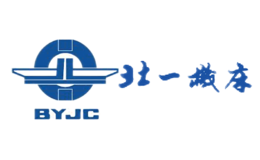
Established in 1949, Beijing No.1 Machine Tool Co., Ltd. (BMT) stands as a paragon of state-owned, high-end CNC machine tool manufacturing and service provision. Located in the Zhongguancun Science Park, Shunyi District, BMT heads an impressive array of subsidiaries, including the esteemed German Waldrich Coburg and Italian C.B. Ferrari.
With a heritage as venerable as the People’s Republic itself, BMT epitomizes excellence in manufacturing. The company’s commitment to technological innovation is affirmed by its status as a National Recognized Enterprise Technology Center and the accolades it has garnered for its contributions to the field of advanced CNC machine tools and basic manufacturing equipment.
BMT’s extensive product line includes:
These machines cater to a wide range of industries, including:
With capabilities extending to integrated automatic production lines and machine tool remanufacturing, BMT is a comprehensive provider in the equipment manufacturing industry.
Service to clients is paramount at BMT, which operates on a mission to generate lasting returns for shareholders, respect for its employees, and value for its customers. With a relentless pursuit of perfection and a spirit of innovation, BMT strives to be a backbone in the equipment industry and a globally competitive machine tool manufacturer and service provider.
BMT’s dedication to technological advancement and customer satisfaction has solidified its position as a leader in the CNC machine tool manufacturing industry. As it continues to innovate and expand its product offerings, BMT remains committed to excellence and service, ensuring its legacy as a cornerstone of the equipment manufacturing sector.

Founded in 1950 and now a subsidiary of China General Technology Group, Qiqihar No. 2 Machine Tool (Group) Co., Ltd. (originally Qiqihar Second Machine Tool Factory) has evolved into a modern industrial enterprise. The company specializes in the production of heavy and super-heavy CNC machine tools, as well as large complete sets of forging and pressing equipment. As a renowned production base for heavy machinery in China, Qiqihar No. 2 Machine Tool Group has been instrumental in supporting key sectors such as civil aviation, maritime engineering, automotive, metallurgy, and rail transport. The company has provided over 2,000 pieces of critical equipment to leading domestic enterprises.
Qiqihar No. 2 Machine Tool Group’s product offerings are diverse and categorized into:
With a rich history of innovation, Qiqihar No. 2 Machine Tool Group has achieved numerous national firsts:
The enterprise’s commitment to quality and innovation has earned it prestigious awards and recognition as a leader in China’s heavy machine tool industry. The “Qiqi 2” brand is not only nationally famous but also enjoys a high level of trust among consumers, symbolizing excellence and reliability in the machine tool sector.
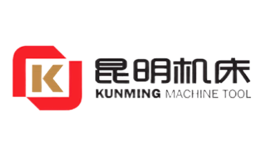
Founded in 1936, Kunming Machine Tool Co., Ltd. has established itself as a cornerstone enterprise in China’s manufacturing sector, particularly in the production of large precision machine tools. Originally known as the Central Machinery Factory, the company has undergone significant evolution through continuous innovation and strategic restructuring. Today, it operates under the umbrella of China General Technology Group.
The company’s headquarters are located at 23 Ciba Road, Kunming, Yunnan Province. It employs a workforce of 940 individuals and boasts total assets valued at 1.3 billion yuan. The facility spans an impressive 264,000 square meters, with a built-up area of 140,000 square meters, providing ample space for its extensive manufacturing operations.
Kunming Machine Tool Co., Ltd. specializes in the manufacture and sales of a wide array of machine tools. Its product portfolio includes:
The company’s product lines feature several esteemed series such as KIKI, KITI, KHC-AUTO, and KiMi, which are designed to meet diverse industrial requirements.
Kunming Machine Tool Co., Ltd. has a rich history of pioneering achievements. Notably, it produced China’s first horizontal boring machine in 1945 and the nation’s first coordinate boring machine in 1958. The company’s commitment to leading-edge technology and superior quality is exemplified by its T42100 coordinate boring machine, which received the National Quality Gold Award in 1980.
Over the years, Kunming Machine Tool Co., Ltd. has embraced change through several restructurings and name changes, reflecting its dynamic growth and strategic partnerships. These transformations have culminated in its current identity as an integral part of China General Technology Group, underscoring its importance in the national and global manufacturing landscape.
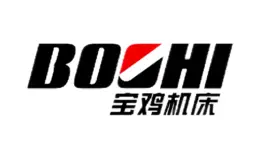
Founded in 1965, Baoji Machine Tool Group is a distinguished developer and manufacturer of CNC machine tools, serving as a pivotal base for CNC machine tool research, development, and intelligent manufacturing in China. With the mission of “Crafting with ingenuity to produce excellent Chinese machine tools,” the company has established a management model that integrates intelligent guidance and dual-drive development, emphasizing masterful manufacturing and global services.
The group oversees 12 subsidiaries, boasting total assets of 2 billion yuan, a workforce of 3,500, and an annual machine tool output of 20,000 units. This production capacity generates revenue of 3 billion yuan and an export value of 30 million USD. Baoji Machine Tool Group consistently ranks at the forefront of China’s machine tool industry in terms of main business revenue.
Baoji Machine Tool Group has built a comprehensive R&D and manufacturing system that leverages talent, technology, and branding. The company offers a diverse product portfolio encompassing over 200 types and 400 specifications across 14 major categories. These include intelligent machine tools, flexible processing units, and automated production lines, catering to various sectors such as automotive, aerospace, engineering machinery, agricultural machinery, and vocational education.
The company emphasizes talent development through its “strengthening enterprise through talent” strategy, creating a multi-level talent development pathway from technical experts to “Baoji Craftsman.” This approach has fostered a robust team of skilled professionals who drive innovation and creativity within the organization.
Baoji Machine Tool Group is committed to high-quality development through customer-centric strategies, market and product transformation, intelligent manufacturing, and technological innovation. The company aims to build a “digital factory” by 2024 and become a leading supplier of high-end equipment. Their dedication to quality and innovation has earned them numerous accolades, including national awards and recognition for their contributions to China’s manufacturing industry.
Baoji Machine Tool Group stands as a testament to China’s capabilities in CNC machine tool manufacturing. Their focus on innovation, talent development, and high-quality production positions them as a leader in the global market, driving forward the future of intelligent manufacturing.
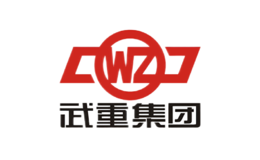
Wuhan Heavy Duty Machine Tool Group Co., Ltd., a subsidiary of China North Industries Group Corporation, is a leading enterprise in the domestic production of heavy and super-heavy machine tools. Established as one of China’s key projects during the “First Five-Year Plan,” the company became a subsidiary of China North Industries Group Corporation in October 2011. With over 3,000 employees, including more than 600 engineering and technical staff, it boasts numerous experts at national and provincial levels.
The company has transformed itself into a prominent CNC heavy and super-heavy machine tool R&D base in China. It possesses advanced manufacturing capabilities and a suite of national and industry-level innovation platforms, including a national enterprise technology center and a post-doctoral research station. Wuhan Heavy Duty Machine Tool Group Co., Ltd. comprises eight subsidiaries, delivering a wide array of products across ten categories and over 400 varieties, all featuring numerical control and composite functions.
The company’s products serve essential industries such as energy, transportation, metallurgy, machinery, and railways, with exports to over 40 countries and regions. These products are integral to various high-demand sectors, ensuring the company’s pivotal role in the global supply chain.
Wuhan Heavy Duty Machine Tool Group Co., Ltd. has made significant contributions to China’s equipment manufacturing sector by completing national projects and developing first-of-its-kind CNC machine tools with independent intellectual property rights. The company has won numerous awards for its innovations and has been recognized as a benchmark enterprise for service-oriented manufacturing and intelligent manufacturing. This recognition underscores its commitment to high-end equipment, smart manufacturing, and sustainable development.
The group’s strategic focus is on strengthening its core heavy machine tools and specialty machines, fostering related industrial chains, and pushing for new business models like “Service+”, “Product+”, and “Internet+”. It aims to become a world-class system integrator and key component supplier in the high-end equipment manufacturing field.
When evaluating Chinese lathe manufacturers, several critical factors come into play, including quality and reliability, technical specifications, and adherence to certifications and standards. These aspects are essential for buyers looking to make informed decisions in a competitive market.
The perception of quality among Chinese lathe manufacturers has evolved significantly over the years. While some manufacturers still face challenges related to quality control, many have made substantial improvements. Leading companies such as SMTCL and DMTG emphasize rigorous quality assurance processes, resulting in products that can compete with international brands. High-end models from reputable manufacturers offer durability and precision comparable to those produced in Taiwan or Japan.
However, not all manufacturers maintain the same standards. Buyers should prioritize established brands with a proven track record of reliability and customer satisfaction. Conducting thorough research and reading customer reviews can provide insights into the performance and longevity of specific models. For instance, SMTCL’s CNC lathes have been widely praised for their robustness in demanding industrial applications.
Technical specifications are critical in determining the suitability of a lathe for specific applications. When comparing manufacturers, buyers should consider factors such as spindle speed and power, swing over bed, length of bed, control systems, and precision tolerance.
Spindle Speed and Power: Higher spindle speeds and power ratings generally allow for more efficient machining of various materials. For example, DMTG offers lathes with spindle speeds up to 4000 RPM, suitable for high-precision tasks.
Swing Over Bed and Length of Bed: These dimensions determine the maximum size of the workpiece that can be accommodated. Different manufacturers may offer varying sizes, catering to distinct market needs. SMTCL’s range includes models with a swing over bed of up to 1000 mm, making them versatile for larger workpieces.
Control Systems: The type of CNC control system can significantly impact usability and programming efficiency. Some manufacturers offer more advanced control systems with user-friendly interfaces and enhanced functionality. QCMTT, for instance, integrates Siemens and Fanuc control systems in their machines, known for their reliability and ease of use.
Precision Tolerance: Precision specifications, such as repeatability and accuracy, are essential for industries requiring tight tolerances, such as aerospace and automotive. DMTG’s lathes, with a repeatability of ±0.005 mm, exemplify the precision required in these sectors.
By comparing these technical specifications across various manufacturers, buyers can identify which lathe models best meet their operational requirements.
Certifications and industry standards play a crucial role in establishing the credibility and quality of lathe manufacturers. Many reputable Chinese manufacturers hold international certifications, such as ISO 9001, which indicates adherence to quality management systems. Other certifications, such as ISO 14001 for environmental management and OHSAS for occupational health and safety, further demonstrate a commitment to quality and sustainability.
Buyers should verify the certifications of potential suppliers to ensure compliance with global standards. This not only enhances trust but also guarantees that the machines meet specific operational and safety requirements. For example, SMTCL’s adherence to ISO 9001 and ISO 14001 standards underscores their commitment to quality and environmental responsibility.
The market positioning of lathe manufacturers varies significantly based on their history, product range, and customer base. Some brands, like DMTG and QCMTT, have established themselves as leaders in high-precision machine tools, often focusing on sectors such as aerospace and automotive. Others may cater more to general manufacturing needs, offering a broader range of products at competitive prices.
Understanding the brand reputation within the industry is essential for buyers. Engaging with industry forums, attending trade shows, and consulting with peers can provide valuable insights into which manufacturers are recognized for their innovation, customer service, and overall value. For instance, DMTG’s reputation for producing reliable and precise lathes has made them a preferred choice in high-tech industries.
Price is a significant factor when comparing Chinese lathe manufacturers. Chinese lathes are generally more affordable than their counterparts from other regions, primarily due to lower labor costs. However, buyers should be cautious of prices that seem too low, as they may indicate compromised quality or lack of support.
It’s advisable to conduct a detailed price comparison, factoring in not only the initial purchase price but also the potential costs associated with maintenance, spare parts availability, and after-sales support. A slightly higher upfront investment in a reputable brand can lead to long-term savings through improved performance and reliability.
The user experience associated with a lathe can significantly influence a buyer’s decision. Factors such as ease of use, availability of technical support, and after-sales service are critical. Manufacturers that offer comprehensive training, readily available spare parts, and responsive customer service tend to earn higher satisfaction ratings from users.
Buyers should consider reaching out to manufacturers to inquire about their support structures, warranty policies, and service options. This proactive approach can help ensure that they receive adequate assistance throughout the lifespan of the machine. For example, QCMTT provides extensive user training and robust technical support, enhancing the overall user experience.
By carefully comparing these aspects, buyers can navigate the diverse landscape of Chinese lathe manufacturers and make informed choices that align with their operational needs and quality expectations.
When considering the purchase of lathes from Chinese manufacturers, it is essential to evaluate various factors to ensure you make an informed decision. This chapter provides a comprehensive guide on price comparison, key considerations for buyers, and the process of placing an order.
The price of lathes from Chinese manufacturers varies widely depending on the type, complexity, and specifications of the machine. Prices can range from approximately $1,350 to $90,000 per piece. Factors influencing the price include the machine’s capabilities, precision, control systems, and additional features.
Basic models of conventional lathes may be more affordable, while high-end CNC lathes with advanced control systems and higher precision come at a premium. Companies like Zhejiang Kaida Machine Tool Co., Ltd. and Shandong Luzhong Machine Tool Co., Ltd. offer competitive pricing for their products, making them attractive options for buyers looking for cost-effective solutions.
When purchasing a lathe from Chinese manufacturers, several key considerations should be kept in mind:
Ensure the manufacturer has a reputation for producing high-quality and reliable machines. Look for manufacturers with ISO 9001 certification, which indicates adherence to international quality management standards. Additionally, consider the materials used in the construction of the lathe, as well as the precision and durability of the components.
Evaluate the technical specifications of the lathe to ensure it meets your operational requirements. Important specifications to consider include spindle speed, power, swing over bed, length of bed, control systems, and precision tolerance. Higher spindle speeds and power ratings typically allow for more efficient machining, while advanced control systems can enhance usability and programming efficiency.
Verify that the manufacturer holds relevant certifications and complies with industry standards. Certifications such as ISO 9001, CE, and ISO 14001 demonstrate a commitment to quality, environmental management, and safety. These certifications also ensure that the machines meet specific operational and safety requirements.
Research the market positioning and brand reputation of the manufacturer. Established brands like Dalian Machine Tool Group and Qinchuan Machine Tool & Tool Group Corp are known for their innovation, quality, and customer satisfaction. Engaging with industry forums, attending trade shows, and consulting with peers can provide valuable insights into the reputation of different manufacturers.
Placing an order for a lathe from a Chinese manufacturer involves several steps to ensure a smooth and successful transaction:
Start by researching and shortlisting potential manufacturers based on your specific needs and budget. Consider factors such as product range, quality, certifications, and customer reviews. Reputable manufacturers like Dalian Machine Tool Group, Shandong Luzhong Machine Tool Co., Ltd., and Zhejiang Kaida Machine Tool Co., Ltd. are good starting points.
Contact the shortlisted manufacturers to request quotes for the specific lathe models you are interested in. Provide detailed specifications and any additional requirements you may have. Compare the quotes based on price, included features, delivery time, and after-sales support.
Before finalizing your order, verify the supplier’s credentials. Check for business licenses, audited supplier status, and relevant certifications. Ensuring the credibility of the supplier helps mitigate risks associated with international transactions.
Once you have selected a manufacturer, negotiate the terms and conditions of the purchase. This includes payment terms, delivery schedule, warranty policies, and any additional services such as installation and training. Ensure that all agreements are documented in a formal contract.
After finalizing the terms, place the order with the manufacturer. Provide detailed specifications and confirm the delivery timeline. Make sure to maintain clear communication with the manufacturer throughout the process to address any potential issues promptly.
Coordinate with the manufacturer and a reliable logistics provider to arrange for shipping and delivery of the lathe. Ensure that all necessary documentation, such as invoices, packing lists, and certificates of origin, are in order for customs clearance.
By following these steps and considering the key factors mentioned, buyers can navigate the process of purchasing lathes from Chinese manufacturers with confidence, ensuring they receive high-quality machines that meet their operational needs.
When engaging with Chinese lathe manufacturers, verifying the credibility of suppliers is crucial to ensuring a successful transaction and long-term partnership. The following steps provide a comprehensive framework for assessing supplier reliability and quality.
Start by gathering a list of potential suppliers through various channels, including trade shows, B2B marketplaces, and online directories. Focus on manufacturers that align with your specific needs regarding product range, production capacity, and market presence. Create a shortlist of suppliers that appear credible based on initial findings.
Conduct a thorough background check on each shortlisted supplier. Verify their registration documents, business licenses, and legal certifications. Utilize resources like the National Enterprise Credit Information Publicity System (NECIPS), which provides access to essential company information in China, to cross-check the authenticity of the information provided. This step helps ensure that the supplier is a legitimate business entity with a good standing.
If possible, conduct on-site visits to the supplier’s manufacturing facility. This allows you to assess their infrastructure, production capacity, and adherence to quality standards firsthand. Evaluate the production processes, machinery, and workforce to ensure they meet your operational requirements. In cases where on-site visits are not feasible, consider hiring third-party audit services or requesting detailed photos and videos that showcase the supplier’s operational status.
Check for relevant certifications that validate the supplier’s commitment to industry standards. Look for ISO (International Organization for Standardization) certifications, which indicate that a manufacturer adheres to international quality management standards, CE marks, denoting compliance with European safety standards, and any other relevant compliance documents. These certifications serve as indicators of the manufacturer’s dedication to quality management, environmental responsibility, and safety practices. Verify these credentials through official websites to confirm their legitimacy.
Perform factory audits to assess the supplier’s capabilities and reliability comprehensively. Common findings from such audits may include discrepancies in labor practices, inadequate quality control measures, or insufficient documentation processes. These audits should cover various aspects, including:
Conducting these audits can reveal insights into the supplier’s operational efficiency and commitment to quality, thereby enhancing supplier reliability.
Assess the supplier’s production capacity by requesting detailed reports on their equipment, production lines, and output capabilities. Understanding their production capacity is essential to ensure they can meet your order volume and delivery timelines. This assessment should be complemented by the previous audit findings, which can indicate whether the supplier has the necessary infrastructure to fulfill your demands.
Implement robust quality control measures by conducting product sampling and testing. This ensures that the supplier’s products consistently meet predetermined quality benchmarks. Regular inspections and testing throughout the production process can help verify adherence to industry standards and minimize potential quality issues. Establish clear metrics for quality assessment and communicate these expectations to the supplier to foster accountability.
Evaluate the manufacturer’s reputation through customer feedback, industry recognition, and past cooperation history. Request customer recommendation letters or case studies to assess the reliability and quality of service provided by the supplier. Engaging with industry forums and networks can also provide valuable insights into the supplier’s standing in the market.
Conduct comprehensive due diligence to assess the supplier’s legal compliance and financial stability. This includes verifying their creditworthiness and ensuring that they adhere to ethical business practices. A financially sound supplier is more likely to meet contractual obligations and maintain stability in supply. Ask specific questions regarding their financial history and payment practices during discussions.
Establish clear communication channels with the supplier, ensuring regular updates and detailed reports throughout the verification process. Transparent communication helps address any concerns promptly and facilitates informed decision-making based on accurate and current information. Building a strong communication framework can also enhance collaboration and trust between parties.
The Chinese lathe manufacturing industry is experiencing rapid technological advancements, particularly in the realm of Computer Numerical Control (CNC) machines. Leading companies such as Haidenhain and Siemens are at the forefront of integrating smart technologies like the Internet of Things (IoT) and artificial intelligence (AI) into their CNC systems. For example, Haidenhain’s TNC controls utilize IoT capabilities to allow for real-time monitoring and optimization of machining processes, enhancing operational efficiency.
Additionally, the adoption of big data analytics is transforming traditional manufacturing processes into highly efficient and automated systems. Manufacturers are increasingly employing multi-tasking CNC lathes that can perform various operations in a single setup. This trend not only reduces cycle times but also minimizes manual intervention, leading to greater precision and consistency in production.
China holds a dominant position in the global lathe manufacturing market, accounting for approximately 32% of the worldwide machine tool export share as of 2022. According to the China Machine Tool Industry Association, the country’s focus on enhancing its machine tool capabilities has led to increased competition among domestic manufacturers, fostering a culture of continuous improvement and innovation. This competitive landscape benefits local industries and positions Chinese manufacturers as reliable suppliers in international markets.
The growth of China’s automotive sector, particularly in electric and autonomous vehicles, is significantly driving demand for advanced machining solutions. In 2023, the automotive industry in China is projected to grow by 10%, further increasing the need for high-precision components produced by advanced lathe technologies. Chinese manufacturers are increasingly collaborating with global automotive giants like Tesla and Volkswagen to develop tailored solutions that meet the specific needs of high-tech manufacturing processes.
As the lathe manufacturing industry evolves, several key trends are expected to shape its future:
Despite the positive trends, the Chinese lathe manufacturing industry faces several challenges. One primary concern is the continued reliance on imported high-end CNC technologies and components. While domestic production has significantly improved, collaboration with foreign manufacturers remains crucial to accessing advanced technologies.
Additionally, rising labor costs in China are prompting manufacturers to seek automation solutions. This transition can pose challenges for smaller manufacturers that may lack the capital to invest in advanced technologies, potentially widening the gap between larger and smaller firms in the industry.
The Asia-Pacific region, particularly China, is witnessing the fastest growth in the lathe manufacturing sector. The region’s robust engineering and automotive industries are significant drivers of this growth, supported by government initiatives and investments in advanced manufacturing technologies. Countries like India are also emerging as competitive players in the lathe market, creating additional opportunities for collaboration and investment.
Chinese brands are gaining international recognition due to their competitive pricing and government support, allowing them to expand their reach in global markets. As the demand for advanced machine tools continues to rise, the interplay between domestic capabilities and international partnerships will be vital for sustaining growth in the lathe manufacturing industry.
Below are answers to some frequently asked questions:
To find reliable China lathe manufacturers, you can take several important steps to ensure you select a reputable supplier that meets your requirements:
By following these guidelines, you can significantly increase your chances of finding a reliable China lathe manufacturer that aligns with your needs and standards.
When comparing lathe manufacturers in China, several key factors and considerations are crucial to ensure you select a reliable and high-quality manufacturer that meets your needs. Firstly, examine the machine precision and quality. Look for manufacturers that emphasize research and development, as this often results in better machine precision and reliability. Ensure their products meet international quality standards, such as ISO9001 and CE certifications, indicating adherence to global quality benchmarks.
Ease of use and user-friendly interfaces are also important. Opt for manufacturers that provide intuitive control systems and comprehensive documentation, which are essential for smooth operation, even for beginners. Reliable after-sales support is vital as well. Select manufacturers that offer prompt support and after-sales services to help with troubleshooting and maximizing the machine’s lifespan.
Consider the variety of products and customization options offered by the manufacturer. A wide range of CNC lathes, including flat bed and inclined bed CNC lathes, can cater to different business needs. Additionally, evaluate the cost-effectiveness of the machines. Chinese CNC lathe manufacturers often provide competitive pricing without compromising quality, making them a cost-effective choice.
Research the manufacturer’s reputation and market presence. Established companies with a long history of innovation and excellence, and a global sales and service network, can provide reliable support. Technological innovation is another crucial factor. Look for manufacturers that invest in advanced technology, integrating high-quality controllers and machining technologies comparable to international brands.
Lastly, check customer feedback and reviews. Insights from other customers can provide valuable information on the real-world performance and reliability of the machines, helping you make an informed decision. By focusing on these factors, you can select a Chinese CNC lathe manufacturer that aligns with your business needs and ensures high-quality, efficient, and reliable machining operations.
Chinese lathes can indeed be as good as those from other countries, but this largely depends on the specific manufacturer and the type of lathe being considered. The quality of Chinese lathes varies significantly across different manufacturers, with some producing machines that meet or exceed international standards while others may fall short in terms of reliability and precision.
Many Chinese manufacturers have made significant improvements in their research and development, manufacturing processes, and quality control measures. These advancements have enabled them to produce high-quality lathes that are competitive with those from countries like Taiwan, Japan, and the United States. Additionally, the lower labor costs in China allow these manufacturers to offer lathes at more competitive prices without necessarily compromising on quality.
However, it is important to note that not all Chinese lathes are created equal. For instance, Chinese mini lathes are often more affordable and can be suitable for hobbyists or small-scale projects, but they might come with certain limitations, such as non-adjustable headstocks that can affect accuracy. On the other hand, larger and more advanced CNC lathes from reputable Chinese manufacturers have shown significant improvements and can be on par with international brands in terms of performance and durability.
To ensure the best quality, potential buyers should conduct thorough research, including verifying the manufacturer’s certifications (such as ISO9001 and CE), checking customer reviews, and possibly arranging for quality inspections. Many Chinese manufacturers now offer strong global sales and support networks, which can be crucial for ongoing maintenance and service.
In summary, while there can be variability in the quality of Chinese lathes, many manufacturers in China are capable of producing high-quality machines that offer excellent value for the price. Buyers should carefully evaluate the specific manufacturer and model to ensure they are getting a lathe that meets their needs and quality expectations.
To verify the credibility of a Chinese lathe supplier, you need to follow a systematic and thorough approach. Here are some key steps and methods to ensure you are dealing with a reliable and legitimate supplier:
First, conduct a background check by verifying the supplier’s business license and registration details through the National Enterprise Credit Information Publicity System (NECIPS). Cross-check this information with government databases and industry authorities to ensure authenticity and look for any lawsuits or litigation records involving the company on platforms like China Judgements Online.
Next, if possible, conduct an on-site visit to the supplier’s manufacturing facility to assess its infrastructure, production capacity, and adherence to quality standards. If an on-site visit is not feasible, consider using third-party audits or requesting detailed photos and videos of the factory.
Evaluate the supplier’s operational capacity by requesting a detailed production capacity report, including an equipment list, the number of production lines, and production capacity data for key products. Assess their production processes, inventory management, and quality control measures. Review customer feedback, industry reputation, and past cooperation history, and request customer recommendation letters or case studies of past collaborations.
Check for relevant certifications such as ISO 9001 or CE marks, which indicate compliance with international standards of quality and safety. Use the State Administration for Market Regulation website to verify product or quality system certifications.
Perform online research to identify any negative feedback or red flags by searching the company name along with keywords like “scam,” “dishonesty,” or “reviews.” Check online directories, B2B platforms, and industry forums for user ratings, reviews, and testimonials.
Conduct a factory audit to verify the supplier’s claims about their production capabilities, which can be done through quality control companies or purchasing agents. Request product samples to evaluate the quality and consistency of the products and implement robust quality control measures, including product sampling and testing.
Contact the supplier’s previous customers to inquire about their service and product quality, and request references and client testimonials.
Ensure clear and detailed contractual agreements are in place, including payment terms, delivery deadlines, and quality standards. Consider using secure payment methods such as Alibaba trade insurance or TT transfer to protect your transaction.
Finally, if possible, engage a reliable sourcing company or agent that can conduct thorough background checks, on-site factory inspections, and quality control measures on your behalf.
By following these steps, you can comprehensively verify the credibility of a Chinese lathe supplier, mitigating risks related to quality, intellectual property, and operational reliability.
The Chinese CNC lathe industry is experiencing several notable trends driven by advancements in technology, economic shifts, and supportive government policies. Increased automation and robotics are becoming more prevalent to enhance efficiency and reduce labor costs. Manufacturers are adopting artificial intelligence and machine learning to optimize operations, improve accuracy, and enable predictive maintenance. The industry is also embracing Industry 4.0, integrating smart manufacturing solutions, IoT, data analytics, and cloud computing to streamline production processes.
High-speed machining and multi-axis machining technologies are being implemented to increase precision and operational flexibility, allowing the production of complex and high-quality components. There is a growing emphasis on sustainability, with manufacturers adopting green practices to minimize material waste and energy consumption, and adhering to environmental standards like ISO 14001.
The integration of CNC machining with additive manufacturing, particularly 3D printing, is gaining traction, enabling the production of complex geometries and rapid prototyping with refined precision. Despite global trends towards reshoring and domestic manufacturing in other regions, China’s CNC lathe industry remains robust, bolstered by continuous technological advancements.
Government initiatives, such as “Made in China 2025,” are providing significant support for the modernization and digitization of the industry, encouraging the adoption of cutting-edge technologies. The market for CNC lathes in China is expected to grow, driven by demand in sectors like automotive, aerospace, and medical devices, with opportunities in aftermarket services and customized solutions.
These trends underscore a dynamic and evolving industry, with a strong focus on innovation, sustainability, and efficiency, positioning China’s CNC lathe manufacturers as key players in the global market.

